Thank you for downloading this Simon & Schuster eBook.
Join our mailing list and get updates on new releases, deals, bonus content and other great books from Simon & Schuster.
C LICK H ERE T O S IGN U P
or visit us online to sign up at
eBookNews.SimonandSchuster.com
We hope you enjoyed reading this Simon & Schuster eBook.
Join our mailing list and get updates on new releases, deals, bonus content and other great books from Simon & Schuster.
C LICK H ERE T O S IGN U P
or visit us online to sign up at
eBookNews.SimonandSchuster.com
ALSO BY DALTON CONLEY
Being Black, Living in the Red: Race, Wealth, and Social Policy in America
Honky
The Starting Gate: Birth Weight and Life Chances
The Pecking Order: Which Siblings Succeed and Why
You May Ask Yourself: An Introduction to Thinking Like a Sociologist
Elsewhere, U.S.A.: How We Got from the Company Man, Family Dinners, and the Affluent Society to the Home Office, BlackBerry Moms, and Economic Anxiety

Simon & Schuster
1230 Avenue of the Americas
New York, NY 10020
www.SimonandSchuster.com
Copyright 2014 by Dalton Conley
All rights reserved, including the right to reproduce this book or portions thereof in any form whatsoever. For information address Simon & Schuster Subsidiary Rights Department, 1230 Avenue of the Americas, New York, NY 10020
First Simon & Schuster hardcover edition March 2014
SIMON & SCHUSTER and colophon are registered trademarks of Simon & Schuster, Inc.
The Simon & Schuster Speakers Bureau can bring authors to your live event. For more information or to book an event contact the Simon & Schuster Speakers Bureau at 1-866-248-3049 or visit our website at www.simonspeakers.com.
Designed by Ruth Lee-Mui
Jacket design by Laurie Carkeet
Jacket illustration by Shannon May
Author photograph Stephen P. Hudner
Library of Congress Cataloging-in-Publication Data
Conley, Dalton
Parentology : everything you wanted to know about the science of raising children but were too exhausted to ask / Dalton Conley ; with E & Yo Xing Heyno Augustus Eisner Alexander Weiser Knuckles Jeremijenko-Conley.
pages cm
Includes bibliographical references.
1. Conley, Dalton, 1969Family. 2. Parenthood. 3. Child rearing. 4. Parenting. I. Title.
HQ755.8.C6543 2014
6491dc23
2013024320
ISBN 978-1-4767-1265-9
ISBN 978-1-4767-1267-3 (ebook)
To My Own Parental Units, Ellen and Steve: What can I say? You tried your best.
Parentology 101 Syllabus
Preface: Parentology Defined
Parentology [pair- uh n-tol- uh -jee]  noun:
noun:
A philosophy of highly engaged child rearing in which one (A) accesses all relevant research; (B) makes a practice of constantly weighing said research against ones own experience and common sense; and (C) invents unique methodologies on the fly and fearlessly carries them out in order to test creative hypotheses about best practices for ones own particular offspring.
Like Mormonism and Jazz, Parentology is a uniquely American, improvisational approach to the raising of children. It relies on both modern science and old school intuition.
Related forms:
Parentologist: | One who practices parentology. |
Synonyms: | Jazz parenting; post-Spock parenting; scientific American parenting |
Antonyms: | Old-world parenting; traditional parenting; textbook parenting; tiger mothering; bringing up bb |
Origin: 2014, portmanteau of parenting + ology (as in study of)
1
What Not to Expect When Youre Expecting
Everything our parents said was good is bad. Sun, milk, red meat... college.
Alvy Singer in Annie Hall
WHAT WOODY ALLEN claimed thirty-five years ago holds equally true today: parenting advice is always changing and often wrong. In 2014, milk is good again (the Dutch have the highest per capita dairy consumption and as a result are the tallest population on Earth and have the lowest rate of osteoporosis and hip fractures in old age)unless of course you are one of the increasing ranks of the lactose or casein intolerant. Sun is also good again, since one of the theories du jour is that we collectively suffer from a vitamin D deficit and seasonal affective disorder. But too much sun is bad if you are skin type one (i.e. pasty white). Meanwhile, if youre dark-skinned, you can never get enough rays in North America. College, it turns out, is neither good nor badif youre not poor, what really matters is gaining admission, regardless of whether you go or not.
Given such complex and contradictory messages, perhaps its time to scrap the parenting advice book and learn how to figure out things for ourselves. After all, since we have no common culture or history, we American parents are constantly improvising on our kids whether we admit it or not. What this book argues is that we should rationalize these jazz-like parenting approaches into a scientific methodology: experimental parenting. Parentology as Im calling this approachis all about trial and error, hypothesis and revision. For theres simply no one-formula-fits-all to raising successful, compassionate kids in todays impossibly complex and radically overstimulating world.
And just to be clear: by experiment, I dont mean raise one child in a box and one in the forest and see how they turn out. That is, experimental parenting doesnt mean randomly and injudiciously trying out any crackpot theory that springs to mind on your precious little guinea pigs. Parentology, in fact, involves first and foremost reading and deciphering the scientific literaturetypically not referenced directly in a parenting bookdrawing your own conclusions, and applying them to your kids. There is no counterfactual or control group for your kids, so keep good notes in your own lab manual.
Ive discovered after my long professional journey as a scientist and my own personal journey that what really matters in the end is parental love as expressed through engagement. As one psychotherapist friend reports, Nobody lies on my couch and complains that they got too much attention. My particular form of engagementthrough the science of childrenhappens to fit both my skill set and what kind of kids Id like to produce: independent, critical thinkers. But be careful what you wish for: I created creatures who question every aspect of my parenting and demand evidence for anything I request them to do.
Whats more, over the course of my parental experienceone that included weeks in the neonatal intensive care unit with our firstborn, medicating our second child, and parental divorceI eventually realized the limits of my professional calling: In the face of the unexpected challenges that each unique child brings, scientific objectivity is no match for the torrent of parental affection and protectiveness that I could not have anticipated feeling and which almost every parent recognizes.
That is, rather than try to tap into parental guilt and worry through providing a hard-to-follow formula (like three hours of violin practice a day), I aim to assuage those same feelings by telling parents that there are many roads to Carnegie Hall. And, more important, most roads to a happy, decent, caring, well-adjusted, independent adult dont necessarily lead through Carnegie Hall or MIT. So, instead of a rigid formula, focused on a single, societal-identified definition of success, I offer an insurgency strategy: more flexibility and fluidity, attention to (often counterintuitive, myth-busting) research, but adaptation to each childs unique and changing circumstances. Trial and error. Hypothesis revision and more experimentation about what works. In other words, the scientific method.
Next page
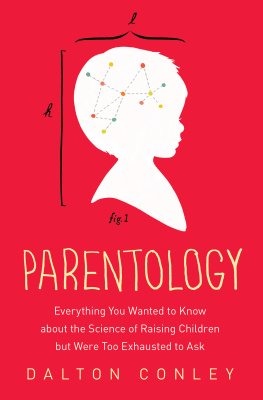
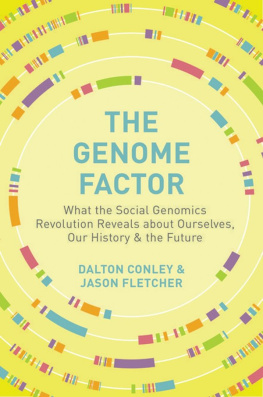
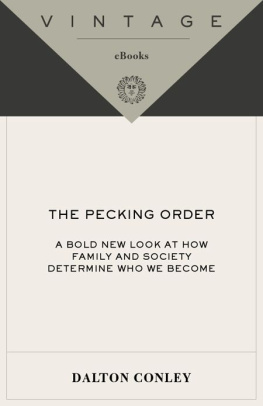

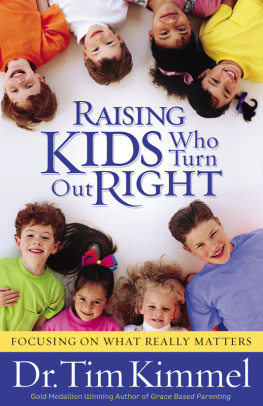
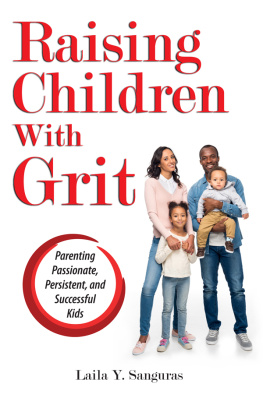
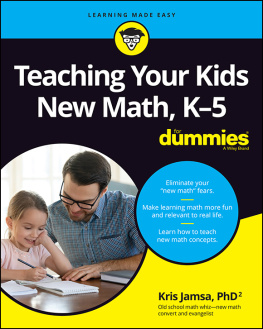
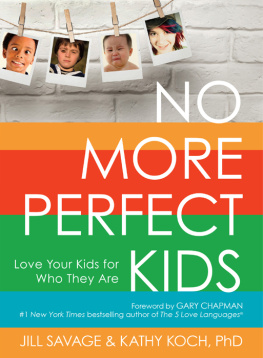
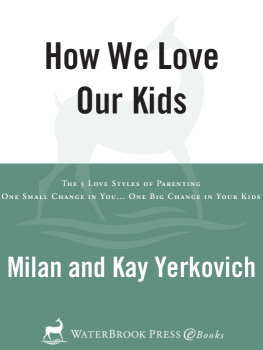
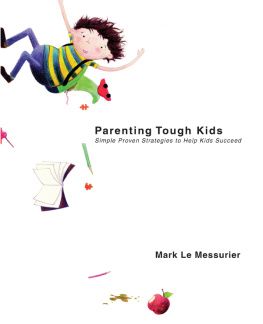
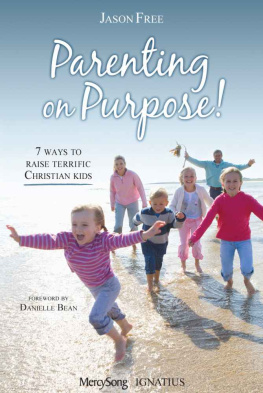
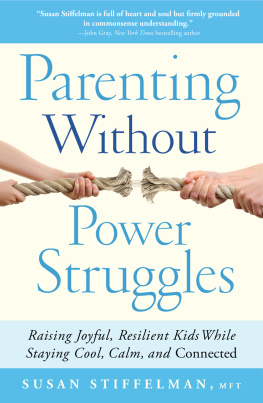



 noun:
noun: